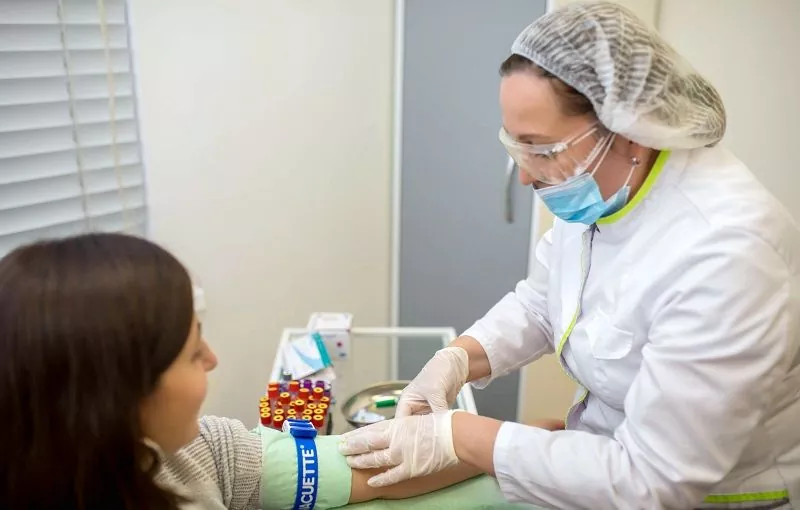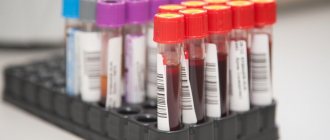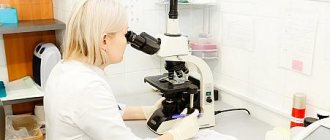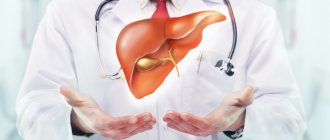Hormone tests are often prescribed by gynecologists, endocrinologists, urologists or doctors of other specialties if there are signs of pathologies associated with hormonal imbalance. In order for the results to be accurate, it is important to follow the rules for taking tests ALENA PARETSKAYA
Pathophysiologist, immunologist, WHO expert ZUKHRA PAVLOVA Candidate of Medical Sciences, endocrinologist, senior researcher at the Faculty of the Fundamental Clinic of Moscow State University, Scientific Director of the Systemic Medicine Clinic ELENA ZHUCHKOVA Doctor endocrinologist "SM-Clinic"
Hormones are chemical compounds that our body produces to regulate various functions - from metabolism to appetite and even heartbeat and breathing. Too much or too little of certain hormones (hormonal imbalance) affects your well-being and provokes various diseases.
The problem can be identified through hormonal testing, which helps assess hormonal imbalances. Modern diagnostic capabilities of laboratories allow us to subsequently receive adequate therapy.
Hormone levels change as we age, and for some, even throughout the day. Doctors use hormonal tests to identify and evaluate hormonal imbalances that may be making a patient sick. Hormone testing is often done with a blood sample, but some tests require urine or saliva samples.
Levels are often tested:
- estrogen and testosterone, progesterone;
- adrenal hormones such as cortisol;
- growth hormone, prolactin and other pituitary hormones;
- thyroid hormones such as thyroxine.
Sometimes hormone stimulation and suppression testing is done to evaluate hormonal imbalances.
Doctors first give the patient hormones and other substances that either start (stimulate) or stop (suppress) the production of certain hormones. They then evaluate the body's response. Common types of stimulation and suppression tests include:
- Growth hormone response to glucagon. In this test, the hormone glucagon is injected into muscle tissue and then its levels are measured over a 4-hour period.
This test helps confirm or rule out growth hormone deficiency in adults.
- Cortisol response to cosyntropin. In this test, the patient is given cosyntropin, which acts as an adrenocorticotropic hormone that is produced by the pituitary gland and stimulates the adrenal glands to produce cortisol. Cortisol levels are then measured every 30 minutes for an hour.
This test helps confirm adrenal insufficiency.
- Glucose tolerance test. In this case, the patient is given a sweet drink, which should reduce the level of growth hormone. The level of growth hormone in the blood is then measured every two hours.
This test helps confirm acromegaly.
- Cortisol response to dexamethasone. The patient takes a dexamethasone tablet at night, which is supposed to block the production of cortisol. The next day, a blood sample is taken to measure the level of this hormone.
The test helps confirm or rule out Cushing's syndrome.
- Metyrapone suppression test. Here the scheme is the same - at night the patient takes a metyrapone tablet, which should block the production of cortisol. The next day, a blood sample is taken to measure cortisol and adrenocorticotropic hormone levels.
This test helps confirm or rule out adrenal insufficiency.
The role of hormones in the female body
Hormones help the entire body work harmoniously and perform proper functions correctly. Progesterone and estrogen play a special role in the female body. The first is necessary for the successful conception and bearing of a child, the second affects the menstrual cycle and the musculoskeletal system.
Hormonal imbalance leads to a number of complications and problems in women's health:
- inability to bear or conceive a child;
- irregularities in the menstrual cycle;
- excess weight or, conversely, lack;
- alopecia (excessive hair loss);
- change, depletion of nail structure;
- male pattern hair growth;
- acne;
- blood pressure surges;
- depression, mood swings;
- benign formations;
- pain during sexual intercourse, in the first days of menstruation.
The list of health problems due to hormone imbalance does not end there. If a woman notices even minor disturbances in the functioning of the body, this is a reason to donate blood for hormones.
What are hormones
Hormones are specific substances involved in the regulation of vital processes, maintaining a constant internal environment, and also ensuring the body’s response to unfavorable factors. Thanks to changes in hormone levels, the mobilization of forces during stress, growth, development and aging of cells and tissues occur. The complex reactions of the endocrine system provide the possibility of the emergence of a new life, childbirth and the ability to produce milk (lactation).
Most hormones are formed in the endocrine glands and enter directly into the circulatory system, and then are distributed to organs and tissues. The work of the glands is regulated by the structures of the central nervous system, in particular, the hypothalamus and pituitary gland. These formations secrete special substances that either stimulate the secretion of hormones or suppress their formation. The exception is the pancreas and adrenal cortex, which themselves control their activity.
Hormonal regulation is carried out according to the feedback principle: if there is a large amount of hormones in the blood, then the pituitary gland suppresses their formation; if the level of hormones in the blood decreases, then the pituitary gland, on the contrary, stimulates their secretion.
Indications for assessing hormonal levels in men
Determination of hormone concentrations in men is necessary in the following cases:
- To confirm/refute infertility.
- Renal failure with functional disorders of the adrenal glands.
- Gaining excess weight and determining its causes.
- Excess or retardation in growth with a significant deviation from average age indicators.
- Tumor-like formations of the testicles.
- Teenage acne with extensive skin lesions (including back, shoulders, chest).
- Swelling of the mammary glands.
Analysis for prolactin in men
Prolactin is synthesized by the pituitary gland and affects a man’s ability to conceive. The task of prolactin is to stimulate the body's immune defense, regulate spermatogenesis, participate in the formation of secondary sexual characteristics and influence weight. The normal level of prolactin in the blood of a healthy man is 50-400 mU/l.
The amount of the hormone may increase for the following reasons:
- Heavy physical activity before donating blood;
- Insomnia;
- Fasting before donating blood (12 hours or more);
- Excessive protein intake before testing;
- Stress;
- Chronic pain;
- Pituitary diseases;
- chronic renal failure;
- Thyroid dysfunction;
- Treatment with antidepressants, beta blockers and antihypertensive drugs;
- Drug use.
Hyperprolactinemia manifests itself as decreased potency, infertility, decreased levels of male hormones, depression, insomnia, the development of diabetes mellitus, osteoporosis, gynecomastia and excess weight gain. The level of prolactin decreases due to diseases of the pituitary gland, while taking certain medications. Before taking the test, you should not worry, work hard, have sex, go to the sauna, drink alcohol or smoke.
Assessment of hormonal levels in women
Hormones are of great importance for women's health, as well as during pregnancy.
A blood test for hormones is prescribed in the following cases:
- Instability of the menstrual cycle.
- Infertility and finding out its causes.
- Excess weight.
- Miscarriage.
- Diagnosis of mastopathy, tumor-like formations of the internal reproductive sphere.
- Acne rashes.
- Diagnosis of early pregnancy (hCG).
- Depression or frequent mood swings.
In case of cycle failure, scanty or heavy discharge during menstruation, prolonged conception of a child and miscarriages, a test for sex hormones is prescribed.
Preparation and donation of blood for hormonal testing
You can take hormone tests only after the necessary preparation, in the morning and on an empty stomach:
- 7 days before the test, stop taking hormone-containing medications.
- Alcoholic drinks are prohibited for 1 day.
- You cannot smoke for 1 hour before donation.
- Do not have sexual intercourse for 1 day.
- Avoid stressful situations on the eve of the test.
- For women: a blood sample is taken on days 5-7 of the menstrual cycle.
Blood is drawn for hormones from a vein. If there are factors that can affect the true indicator, they should be eliminated at least 7 days before the test:
- Helminthiasis
- Acute infection, including viral origin
- Genital infection
- Night shifts
- Taking dietary supplements and medications not prescribed by a specialist (self-medication)
- Taking anabolic steroids and sports supplements
The cost of a hormone test is determined by the need to study the functioning of the glands of a particular organ.
Expert opinion of a doctor
Osina Ekaterina Alexandrovna
Reproductologist, obstetrician-gynecologist, Ph.D.
Hormone tests indicate the indicators accepted as the norm and the patient’s actual hormone levels. The woman’s task is to take the received form to the attending physician. Only he can decipher the data received and prescribe the necessary treatment. It is strongly not recommended to decipher the test results yourself - this can lead to diagnostic errors, incorrect treatment and worsening health problems.
How to take the test correctly
Blood should be donated at a strictly established time, usually in the morning. It is worth taking into account all the specialist’s recommendations so that the result is the most accurate. The standard approach for passing the analysis involves the following steps.
- Adrenocorticotropic. Avoid alcohol, nicotine, drugs, stress, and the use of any medications the previous day. Take in the morning on an empty stomach. Normal values are 9-46 pg/ml.
- Thyroid-stimulating. For 2 days you should not drink alcohol, nicotine, or play sports. The test is taken in the morning on an empty stomach. The norm is 0.4-4 µIU/ml.
- Luteinizing. Avoid physical activity and smoking 3 days before the test. Blood is taken in the morning on an empty stomach. Just before giving up, you should calm down. Take on the fourth-seventh, 19-21 days of the cycle. Normal – 1-8.8 mIU/ml
- Follicle stimulating. A day before, stop sports and nicotine. Give in the morning on an empty stomach, on the third to fifth day, 19-21 days. Normal values are 1-11.8 mIU/ml.
- Prolactin. Exclude: thermal procedures, sexual intercourse, stress, physical activity, nicotine, alcohol. Before taking blood, you need to rest for about 15 minutes. Donation is on the third to fifth day from the start of menstruation. Normal values are 67-726 mIU/ml.
- Testosterone. On an empty stomach, do not drink alcohol or nicotine the day before, avoid sexual intercourse, or sports. Taking occurs on the eighth to tenth day of menstruation. The norm is 0.45-3.75 nmol/l.
- Estradiol and Progesterone. Stop playing sports one day before and don’t smoke. For Progesterone, cancel fatty foods the day before. Estradiol – 43.8-211 pg/ml, Progesterone – 5.3-86 nmol/l.
- Cortisol. Cancel one day before: oral contraceptives, smoking, sports. The normal value is 80-550 nmol/l.
- DHEA sulfate. There is no special preparation, testing on an empty stomach, on the eighth to tenth day of menstruation. The norm is 35-430 µg/l.
- 17-hydroxyprogesterone. There is no special preparation; you can’t eat in the morning. Conducted from 3 to 5 days. The norm is 0.07-2.90 ng/ml.
Attention!
The normal indicators may vary due to the patient’s age and hormonal period (menopause, pregnancy).
Every woman should undergo hormone tests annually for prevention. On which day of the cycle it is better to schedule the procedure, a specialist must decide.
Normal hormone levels in men
| Dihydrotestosterone | 250 – 990 pg/ml |
| Testosterone | 345 – 950 ng/dl |
| Sex binding globulin | 13-70 nmol/l |
| FSH | 1.37 - 13.58 mEdl |
| LH | 2 - 9 mU/l |
| Estradiol | 16 – 73 pg/ml |
| Prolactin | 2.5 - 15 ng/ml |
| Progesterone | 0.35 – 0.63 nmol/l |
Hormonal regulation of spermatogenesis
Decoding and norm of indicators
The most common examinations of hormonal balance and assessment of the functioning of critical systems:
- Thyroid hormones: TSH - 0.4-4 mU/l (normal).
- Triiodothyronine (free form) – 2.6-5.7 p mol/l.
- Triiodothyronine (total) – 1.3-2.7 n mol/l.
- Free thyroxine (T4) – 10-22 p mol/l.
- T4 (total) – 58-161 n mol/l.
- Thyroglobulin – 1.7-56 ng/ml.
- STH – up to 10 ng/ml.
- Testosterone – 0.2-1 ng/ml (women), 2-10 ng/ml (men).
- Cortisol – 200-750 nm/l.
An increase or decrease in indicators indicates pathological processes in the body. Correcting hormonal imbalances in a timely manner will allow organ function to return to normal levels.
Attention!
The interpretation of the tests performed should not be carried out independently by the patient. Diagnosis can only be made by a professional doctor who compares laboratory tests with the history of the disorder, the results of other examinations and the presenting symptoms.
You can donate blood for hormones in our clinic, where there is a modern equipped laboratory and competent specialists.
What tests does the endocrinologist prescribe?
Depending on the patient’s symptoms and complaints, the doctor may prescribe several tests. All tests showing hormone levels can be divided into several subgroups:
- Thyroid hormones - these include TSH, T3 (total, free), T4 (total, free), thyroglobulin, anti-TPO;
- Female sex hormones - estradiol, FSH, progesterone, LH, prolactin;
- Male sex hormones – testosterone, dihydrotestosterone;
- Adrenal hormones – aldosterone, DHEA, DHEA-S, 17-OH-progesterone, cortisol;
- Pancreas – proinsulin, insulin, c-peptide.
Tests for thyroid hormones
The thyroid gland is the largest endocrine organ. It synthesizes iodinated hormones that regulate metabolism in the body, and calcitonin, which affects the interaction of calcium and phosphorus salts. The thyroid gland provides oxygen respiration to tissues, affects the activity of the central nervous system and cardiovascular system, and regulates the volume and rate of energy consumption.
Tests are prescribed for sudden fluctuations in body weight. Other indications:
- for diagnosing thyroid diseases;
- pituitary adenoma;
- atrial fibrillation;
- disease control;
- infertility;
- sexual dysfunction;
- mental underdevelopment in children;
- baldness;
- bulging eyes;
- constant sudden changes in mood;
- absence of menstruation;
- neoplasms in the thyroid gland;
- various types of goiter.
A blood test for thyroid hormones is mandatory for all newborns, as well as after surgical operations on the thyroid gland.
Study hormones and their norm
Triiodothyronine and thyroxine (T3 and T4) are the main hormones. They affect the functioning of the nervous and cardiovascular systems, accelerate metabolic and energy processes, and are responsible for the growth of soft and bone tissues.
Fine:
- T3 – 3.5-8.0 pg/ml or 5.4-12.3 pmol/l;
- T4 – 0.8-1.8 pg/ml or 10-23 pmol/l.
The synthesis and release of T3 and T4 is controlled by TSH (thyroid stimulating hormone). A blood test for TSH hormones normally shows 0.4-4 µIU/ml.
In some cases, for example, in order to identify autoimmune inflammation or thyroid tumors, the blood is tested for thyroglobulin. The norm is 1.5-59 ng/ml. During the analysis, the indicators of AT-TG (antibodies to thyroglobulin) are taken into account. Their norm is less than 100 mU/l, and for AT-TPO (antibodies to thyroid peroxidase) it is from 30 to 100 IU/ml.
Determination of the amount of calcitonin can be carried out using two methods.
| Immunoenzyme (pg/ml) | Immunochemiluminescent (pmol/l) | |
| Women | 0,07-12,97 | from zero to 1.46 |
| Men | 0,68-32,26 | 0 – 2,46 |
| Children | up to 79 | — |
In women in the 3rd trimester of pregnancy, with a slight excess, the indicators are normal.
Preparing for the study
Preparation begins a month before the tests. Stop taking medications that may affect thyroid hormones. A week before the test, iodine-containing foods, spicy, fried and spicy foods are excluded from the diet. Three days before the procedure, avoid alcohol, coffee, and strong tea.
It is prohibited to do ultrasound, ECG, or physiotherapy. The day before the study, stop physical activity. The last meal is allowed 12 hours before the procedure. During this period you cannot drink or chew gum. The last smoke break is an hour before the procedure. The test is taken before 10 am, on an empty stomach.
Decoding
With a lack of hormones, hypothyroidism appears, with additional complications - thyroiditis. A TSH hormone test determines the level of substances. An excess can trigger the appearance of thyrotoxicosis or thyroid cancer. This is indicated by low TSH, but if T3 and T4 are normal or exceed it. With a decrease in TSH and T3 (T4 is the standard), there is a lack of enzymes.
High TSH indicates:
- pathologies of the thyroid gland;
- neoplasms;
- mental overexcitation;
- hypothyroidism;
- adrenal insufficiency.
Low TSH indicates primary thyrotoxicosis or hyperthyroidism.
High T4 indicates:
- obesity;
- adrenal disease;
- hyperthyroidism;
- obesity;
- adrenal disease;
- acute hepatitis;
- inactive HIV;
- hyperbilirubinemia;
- somatic disorders.
Low T4 may indicate starvation, gastrointestinal and kidney diseases. High T3 may indicate hyperthyroidism, iodine deficiency goiter, hepatitis and other diseases.
Low T3 often indicates:
- autoimmune thyroiditis;
- gastrointestinal diseases;
- starvation;
- hypothyroidism;
- hemolysis.
High AT-TG indicates:
- Graves' disease;
- thyroid carcinoma;
- pernicious anemia;
- autoimmune (eg, Hashimoto's thyroiditis) and chromosomal disorders;
- idiopathic myxedema.
High TG indicates goiter, thyroiditis, and cancer. An increase in AT-TPO indicates autoimmune thyroid diseases. The level of calcitonin determines a malignant tumor.
Any increase or decrease in hormone levels indicates a number of diseases. In pregnant women, slightly elevated values are considered normal. Additional tests are required for an accurate diagnosis.
“It’s your hormonal imbalance!”
Hormones are biologically active substances that are produced in the cells of the endocrine glands. Modern science knows more than 100 hormones responsible for various functions, the most famous of them:
- pancreatic hormones (insulin, glucagon);
- thyroid gland (TSH, T3, T4);
- adrenal glands (adrenaline, norepinephrine, cortisol, aldosterone);
- ovaries (progesterone and estrogen);
- pineal gland (melatonin and serotonin);
- substances secreted by the hypothalamus - prolactin, oxytocin, luteinizing hormone.
It is rare that a hormone is responsible for a specific function. For example, the sex hormones estrogen and progesterone, in addition to direct reproductive function, protect blood vessels from damage by atherosclerosis, and bones from calcium loss, stimulate collagen synthesis for smooth skin and healthy joints. It is thanks to them that women before menopause are much less likely to suffer from high blood pressure.
Nadezhda Bezemskaya, a doctor and expert at the Laboratory of Personalized Medicine LabQuest, will talk about how a woman may suspect a hormonal imbalance.

Maybe hormones are to blame?
A very accurate indicator of a woman’s health is her menstrual cycle. Regular and without pathological pain, the nature of menstrual flow: not too scanty, but not very abundant - all this indicates the absence of disorders. What does regular mean - the onset of menstruation occurs with a certain frequency. For some it is 24 days, for others it is 45, and for some women, each next cycle is longer or shorter by 3-5 days than the previous one. Those. Menstruation occurs at sufficient intervals to predict the onset of the next cycle. Deviations from the usual schedule for 1-2 days are not considered by doctors as a pathology.
Since hormones affect weight, mood, skin, hair and nails, their condition can be an indicator of the health of the hormonal system. Excess weight that is difficult to “lose”, a feeling of persistent fatigue, male-pattern hair growth or a sharp increase in hair growth in general, irritability and tearfulness, changes in skin condition – increased greasiness and the appearance of acne, deterioration in hair condition – dull and brittle – all this can be a manifestation of hormonal disorders.
How to find out what exactly is broken in the system?
To confirm the suspicion, take a set of tests and visit a gynecologist or endocrinologist. The following hormones are usually tested:
- thyroid hormones (TSH, T3, T4)
- prolactin;
- progesterone;
- luteinizing hormone (LH);
- follicle-stimulating hormone (FSH);
- estradiol;
- free testosterone.
Sex hormones must be taken on strictly defined days of the cycle. It is important to remember that it is useless to take sex hormones when taking oral contraceptives, since the data will be unreliable. You can go to the laboratory a month after stopping the pills, when your first spontaneous menstruation begins.
A blood test for follicle-stimulating hormone, luteinizing hormones and prolactin, estradiol is given on days 3–5 of the cycle. The day of the start of menstruation is day 1 of the cycle. It is better to donate blood for testosterone on days 7–9, in the period before expected ovulation. But studies on progesterone will be relevant at the end of the cycle on days 21–22. Thyroid hormones are not subject to cycling: T3 and T4 can be taken on any day. If a woman has a cycle longer than 28 days, the doctor will prescribe the best days for testing.

The most important thing in diagnosis and treatment
The most important aspect in diagnosing and treating diseases is accuracy and timeliness.
Timely detection of diseases and timely initiation of treatment can prevent the development of numerous complications. The absence of a menstrual cycle for six months leads to serious changes in the body, which contributes to infertility. But the accuracy of diagnosis is no less important. Even if you have chosen a proven and reliable laboratory, be sure to follow a few simple rules that will help you obtain a reliable hormonal profile analysis:
— Donate blood in the morning, preferably before 9 am. This rule is due to the fact that “peak” levels for most hormones occur somewhere between 5-7 am.
- Take your time. If you rush into the laboratory after running a block, afraid of being late, the data on some particularly stress-sensitive hormones will likely be overestimated. For example, prolactin. Therefore, take your time, and when you come to the laboratory, give yourself time to relax and unwind.
— Avoid excessive stress, including sexual activity, at least one day before the test.
After receiving the test results, consult your doctor for a transcript, as they have diagnostic value only when considered with specific symptoms.
Blood test for hCG
Medical has its own modern laboratory and offers a blood test for hCG at a cost of 800 rubles. We guarantee high accuracy of the study and correct diagnosis made by a highly qualified doctor. Analysis results can be obtained within a day.
The hCG test is one of the main methods for diagnosing pregnancy. It is based on the determination of human chorionic gonadotropin, which is a special hormone that appears from the moment the embryo develops. This hormone plays an important role in the development of pregnancy, maintains its normal course, and also stimulates the formation of estrogen and progesterone. In our clinic you can take a blood test for hCG at a time convenient for you and in comfortable conditions. Our laboratory doctor bears full responsibility for the accuracy of diagnosis.
The conditions for collecting biomaterial and its examination at the Private Practice clinic meet the requirements of European medical standards. An increased concentration of human chorionic gonadotropin confirms the onset of pregnancy, which is a joyful event in every family. On the other hand, a deviation of the hCG content from the norm in the blood of men and non-pregnant women indicates the presence of a hormone-producing tumor in the body.
Why do you need to donate blood for hCG?
Carrying out a blood test to determine the concentration of human chorionic gonadotropin provides an opportunity to resolve a number of issues. The analysis allows:
- diagnose pregnancy in the early stages of its onset;
- monitor the health of the expectant mother;
- determine the dynamics of pregnancy;
- promptly identify pathological fetal development and eliminate the risk of giving birth to a sick child;
- assess the completeness of induced abortion;
- exclude the diagnosis of ectopic pregnancy;
- identify amenorrhea, which is a symptom indicating physiological, mental, genetic, biochemical disorders in the development of the female body;
- establish the threat of spontaneous pathological termination of pregnancy;
- diagnose tumors in a patient.
Men are recommended to take a blood test for hCG if they suspect a testicular tumor. Timely detection of pathology during pregnancy and in the body of men is the key to a successful solution to the problem, eliminating irreparable consequences and the risk of deterioration of health.
The determination of hCG in our clinic is based on highly qualified medical personnel and the use of modern laboratory equipment. Reliable research results will help determine changes in the course of pregnancy, carry out a number of measures to eliminate them and create all the necessary conditions for the birth of healthy children.
Preparing for a blood test to determine hCG and its interpretation
To conduct an hCG test during pregnancy, you need to come in the morning on an empty stomach or 4-6 hours after a meal to collect biological material from a vein in the elbow. If difficulties arise in the process of collecting blood in this place, laboratory assistants use other superficially located venous vessels. The procedure is carried out quickly and painlessly. To detect pregnancy, it is advisable for women to take a blood test for hCG on the 3rd–5th day of missed menstruation, as well as at a later date. The test is recommended to be repeated in the second trimester to exclude fetal pathology.
The normal concentration of the hCG hormone in the blood of women is less than 5 mU/ml, and in men less than 2.5 mU/ml. In the first three weeks after conception, the level of human chorionic gonadotropin in the female body changes as follows:
- on days 6–8 – from 5 to 50 mU/ml;
- on days 7–14 – from 50 to 500 mU/ml;
- on days 14–21 – from 101 to 4870 mU/ml.
These results confirm the absence of pathology during fetal development and the normal course of pregnancy.
You can undergo this laboratory test at the Private Practice clinic any day of the week. You can make an appointment with a gynecologist or get advice from the right specialist, if necessary, by calling the indicated phone numbers from 09:00 to 21:00. The results of the analysis are sent to the attending physician, and, if necessary, to patients by e-mail. Contact us, we are always glad to see you!










